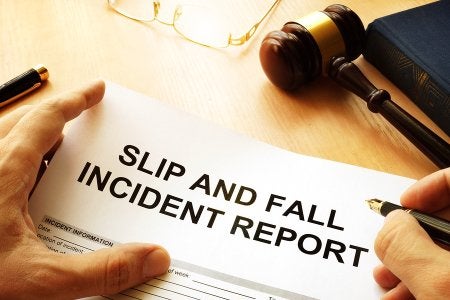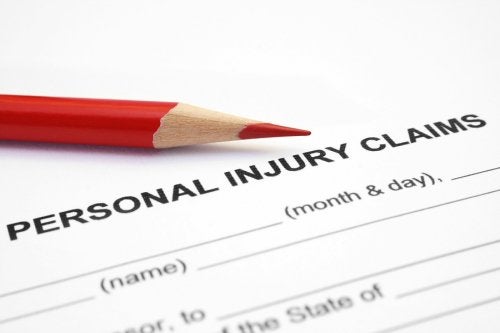-
How Can I Amend My Will?
There may come a time when you need to amend your last will and testament. Perhaps you would like to leave inheritances to the newest generation of family members, or you need to eliminate someone from the will after a divorce. To make legally recognized amendments to your will , visit a lawyer serving Tracy or Manteca.
You can also watch this video for a general overview. It explains that you can either have a completely new will drafted or you can attach a codicil to the original will. A codicil amends specific parts of the will. You must sign the codicil in the presence of two witnesses in order for it to be legally valid. If the instructions in the codicil contradict those in the will, the codicil’s instructions will be carried out instead of the will.
-
The Basics of Beneficiaries
One of your periodic estate planning tasks may be to update your beneficiaries. A designated beneficiary is someone to whom you leave certain assets. You can learn more about designating beneficiaries by watching this featured video and consulting a lawyer serving Tracy and Manteca.
The certified financial planner featured here explains that a beneficiary designation supersedes the information contained in your will. For example, your last will and testament may leave everything you own to your spouse. If your life insurance policy still lists your ex-spouse as the beneficiary, those benefits will go to your ex. This is why attorneys urge their clients to update their estate plans as life circumstances change.
-
Will My Retirement Savings Go Through Probate?
Probate is the legal process of managing and distributing a deceased person’s estate in accordance with his or her last will and testament, or with the laws of intestate succession. When individuals consult attorneys in Tracy or Manteca to handle estate planning, probate is often a top concern because it can be lengthy and complicated for the surviving heirs. The short answer is that no, your retirement savings won’t go through probate—but there are exceptions, and you should consult your lawyer about them.

Transferring Assets to Beneficiaries
Your estate planning process should include designating beneficiaries for certain accounts, or updating beneficiaries you’ve already designated. These accounts do not pass through probate. All of the assets in them will be transferred to the beneficiary upon your death. Even if your will specifies that your 401(k) will go to your children, if the designated beneficiary is someone else, that person will receive it. For this reason, you should update your beneficiary designations whenever life circumstances change. Of course, if you neglect to designate any beneficiaries, the account will pass into probate.
Designating Alternate Beneficiaries
An alternate beneficiary is someone who will inherit the assets in the event that the primary beneficiary can’t. It’s always good practice to name an alternate beneficiary. Otherwise, those assets will go into your estate and through probate. Hypothetically, Frances and Bernard are a married couple, and they have each left their assets to each other. They both die in a car accident. Lacking alternate beneficiaries, their retirement accounts pass into probate. Their adult children won’t receive those assets until the process is complete.
Naming Your Spouse
California is a community property state. This means that half of the assets you contributed to your retirement account actually belong to your spouse. If you name your spouse as the primary beneficiary, there’s no problem. Otherwise, your spouse could claim those assets, which might force the retirement account to enter probate. If you don’t want this to happen, your attorney can provide a waiver that relinquishes your spouse’s claim on the retirement account. Your spouse would need to willingly sign this waiver.
-
Common Causes of Slip and Fall Injuries at Gyms
Gym owners and managers have a responsibility to ensure that the facility is reasonably safe for its members. If they fail to perform routine maintenance, repairs, and cleaning, the gym’s members can suffer the consequences. Consider visiting a personal injury lawyer serving Tracy or Livermore to find out if you have grounds to file a case against the gym owner. Your attorney will need to know of the exact circumstances of the accident, such as where you were, what you were doing, and what caused you to fall.

In gyms, slippery floors are most common in the locker room areas and the side of the pool. It’s also possible to slip and fall in the showers if they have not been properly cleaned. In other areas of the gym, members may fall on worn out, frayed carpeting, broken floor tiles, or uneven floorboards. The lack of handrails may contribute to the fall. Similarly, the lack of adequate lighting can prevent a person from spotting a hazard. Your injury lawyer will need all the details you can provide to determine if the owner or manager might be held liable for your losses.
-
FAQs and Answers About Carbon Monoxide Poisoning Lawsuits
Carbon monoxide is a gas that is odorless and colorless. In high concentrations, it can cause serious health problems, and it can be deadly. Installing and keeping working batteries in carbon monoxide detectors are basic safety precautions, yet many hotel owners are negligent. Survivors of carbon monoxide poisoning can turn to an injury lawyer in Tracy or Livermore for legal guidance. An attorney can also assist families of individuals who were killed due to the negligence of hotel owners.

Are carbon monoxide detectors legally required in hotels?
The law can vary from state to state. In California, smoke alarms and carbon monoxide detectors are required in each dwelling intended for human occupancy. The owner of the dwelling is responsible for both installing them and keeping them in working condition. These requirements extend to owners of hotels.
What if the hotel owner installed the wrong type of carbon monoxide detector?
A hotel owner may still be found liable for carbon monoxide poisoning injuries or death if he or she installed the wrong type of detector. In California, it is prohibited to sell, market, or distribute any carbon monoxide alarms or detectors unless they are approved by the State Fire Marshal. If you do file a lawsuit, your injury lawyer will investigate whether the hotel owner installed an unapproved detector or failed to keep an approved detector in working condition.
How do carbon monoxide leaks happen?
In some cases, a gas leak is responsible for poisoning hotel guests. It’s also possible for the equipment in the utility room to malfunction. The gas can leak out of the utility room into nearby guest rooms. If the hotel has a connected generator in operation, it’s possible for the generator to malfunction or not be hooked up properly.
How do I know if I’ve been affected by carbon monoxide poisoning?
Unfortunately, travelers spend much of their time in hotel rooms asleep. If the gas leak occurs overnight, the guests may not know their health has been affected. Some guests may be awakened by nausea, vomiting, dizziness, or headaches. Severe cases of poisoning can cause loss of consciousness, unresponsiveness, and death.
-
What Does Comparative Negligence Mean?
One key concept in personal injury law is negligence. A person can be considered negligent if he or she acts or fails to act in a way that breaches his or her duty to exercise reasonable caution toward someone else. In some personal injury cases litigated in Tracy or Livermore, just one person is found negligent for an accident that caused another person’s injuries. But quite often, cases are more complex, and even the victim or plaintiff might share some of the fault for the incident. This is where the concept of comparative negligence comes into play.

Comparative negligence states, like California, do not penalize partially negligent plaintiffs by eliminating their right to seek compensation altogether. They can still collect damages, but their award will be reduced by a certain percentage. This percentage is also the percentage of blame they’re assigned for the accident. For example, if the jury decides the plaintiff shares 15% of the fault, his or her compensation will be reduced by 15%.
-
How Life Insurance Fits into Your Estate Plan
You can purchase life insurance at any time, without consulting a lawyer. However, if you want to maximize the inheritances of your heirs , your best option is to seek professional estate planning advice in Tracy or Manteca. An attorney who handles these cases can give you the most effective guidance to make estate laws work for your family’s benefit.
Watch this video to find out how. It features a financial planner, who presents the hypothetical example of a husband and wife who each gift $14,000 to each of their three children. This totals $84,000. The financial gifts would help their children today, but if the couple were to invest that amount into life insurance, their children could receive around five million in death benefits in the future.
-
Estate Planning Terminology Every Adult Should Be Familiar
Estate law involves complex nuances of language, and the terminology can be baffling to non-lawyers. You can always count on a will lawyer near Tracy or Manteca to fully explain anything that isn’t clear to you. However, it’s still advisable for all adults to have a basic understanding of the most common estate planning terms.

Last Will and Testament
Your will dictates how, after satisfying debts, your remaining assets in your estate will be distributed to your heirs. Heirs are also called beneficiaries. You can use your will to distribute specific pieces of property if you wish, or to provide for your pets in the event that they outlive you. If you have any minor children, you should use your will to designate a guardian for them.
Guardian
A guardian is someone whom you trust to raise your minor children in the event that you die before they reach the age of majority.
Executor
The executor of your will is the person who will be responsible for seeing that its terms are carried out. Even when the executor works with a lawyer, he or she will have many complex responsibilities. Before designating an executor, you should ask that person if he or she is willing to take on these responsibilities.
Trust
A trust is a document that is legally binding. You can transfer assets into the trust during your lifetime. The trust manages the assets, and after your death, the trust distributes the assets to your beneficiaries.
Trustee
A trustee is a person whom you’ve designated to manage the trust. A trustee might also be a corporate entity instead of a single person. Trustees are responsible for administering and distributing the trust in accordance with the instructions in the trust document.
Probate
Probate is a legal process. It begins when the executor of a will files the will with the probate court in order to validate it. Validating a will means to prove that it’s legally valid. Probate involves paying the decedent’s debts and distributing the remaining assets.
-
Can I Sue a Restaurant for Food Poisoning?
The pain and gastrointestinal effects of food poisoning can range from unpleasant to excruciating. Sometimes, food poisoning can even be life-threatening. It’s possible to accrue significant medical expenses if you need to be hospitalized for a foodborne illness, and you shouldn’t have to pay for medical bills when someone else is to blame. It’s tricky to prove that a restaurant is liable for a particular case of food poisoning, but it’s still worth your time to visit a personal injury lawyer serving Tracy or Livermore. Depending on the specifics of your case, you may be able to file a personal injury lawsuit to recover compensation for your losses.

Preserving the Evidence
Food poisoning liability can be difficult to prove, and your attorney will need all of the evidence he or she can get. If you brought your leftovers home from the restaurant, do not throw them out if you suspect the food made you ill. Your injury lawyer may request to send them to a lab for testing to confirm that the restaurant served you contaminated food. Upon falling ill, you should go to an urgent care clinic or ER, even if you feel like you could recover at home. Your illness may be more serious than you think, and your medical records will be instrumental in proving your claim.
Testing Your Illness
A general diagnosis of food poisoning, not supported by lab tests, probably won’t be enough to obtain a favorable outcome for your case. Ask the doctor to conduct lab tests to determine exactly which pathogen has caused your illness. Some of the most common are salmonella, E. coli, and norovirus. It’s possible to use DNA testing to confirm that your pathogen originated from the restaurant.
Determining Liability
Restaurants owe a duty of care to their patrons to handle food under sanitary conditions, and to cook it to the proper internal temperature. Your attorney can investigate the restaurant to determine if the staff may have breached the basic standards of food hygiene. However, it’s also possible that the restaurant itself isn’t to blame. The problem may be further up the supply chain, such as the farm or processing plant. Pinpointing the exact cause of your illness will determine the party named as the defendant in the lawsuit.
-
Should I Agree to Be an Executor? | Bakerink, McCusker & Belden
Executors of wills are generally selected because of their ability to work with numbers, handle complex paperwork, and pay attention to little details. It can be flattering to be asked to be an executor, but don’t give your answer right away. Consider talking to an estate planning attorney near Tracy or Manteca about your responsibilities as an executor before you make a decision. If you do agree, you could ask the testator to select an alternate executor in the event that you no longer feel capable of carrying out your duties when the time comes.

Evaluate your abilities and limitations.
Critically examine whether your abilities would make you well-suited to carrying out the responsibilities of being an executor of the will. It isn’t necessary for competent executors to have a background in finance or law. You always have the option of hiring an accountant, and it’s a smart move to hire an estate planning attorney to guide you through the probate process. However, you should at least be comfortable working with numbers. Know that probate can be quick and easy or lengthy and arduous, depending on the deceased’s estate and the beneficiaries. Consider whether you would have time to take on these tasks, and whether you’re willing to commit to using your time this way.
Consider your relationship with the individual.
Contrary to popular belief, spouses do not always make the best executors. After the death of their loved one, a bereaved spouse must cope with grief and all of the challenges that go with it—such as cloudy thinking and poor concentration. Think about suggesting an alternative executor or recommend that your spouse chooses a paid, professional executor.
Assess the size of the estate.
Of course, there’s no way to predict what the individual’s estate will be like once that person dies. But you can ask some general questions to get a sense of how complicated and large it might be. Complicated estates may be better left to a professional executor.
RECENT POSTS
categories
- Uncategorized
- Personal Injury
- Estate Planning
- customer reviews
- Financial Planning
- Work Injury
- Tracy Lawyer
- Attorney
- Dog Bites
- Auto Accident
- Slip and Fall
- Car Accident
- Living Trusts
- Trust Administration
- Living Will
- Wrongful Death
- Probate
- advanced health care directive
- About Us
- Russian linguist
- Infographic
- Wills and Trusts
- Will
- Car Crash
- Executor
- Whiplash Injuries
- Estate Taxes
- Slip and Fall Injury
- Auto Accident Claims
- Intestate Succession
- Disinheritance
- Trust Administrators
- Cycle Accident
- Accident
